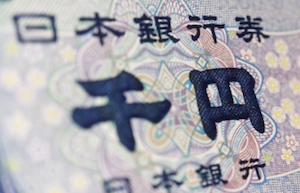The £550 million Baillie Gifford Shin Nippon investment trust said the company’s net asset value per share declined 14.9% and its share price fell 20.5% in the year to January 31, 2024, while its comparative index — the MSCI Japan Small Cap Index — rose 6.3%.
The investment trust, managed by Praveen Kumar, said that in sterling terms over five years, its comparative index was up 24.1% while the trust’s net asset value per share was down 6.8% and its share price was down 26.3%.
Shin Nippon aims to achieve long term capital growth through investment principally in small Japanese companies which are believed to have above average prospects for growth.
However, the fund reported: “Portfolio performance has remained weak since the decline in impact of Covid-19 as large-cap value stocks have been very much in favour compared to high growth small cap stocks.
“Most of the portfolio’s poor performers over the past year were companies with meaningful exposure to China. There was wide sectoral dispersion among the portfolio’s top performing stocks.
“The board is committing to a one-off performance-triggered tender offer for up to 15% of the company’s issued share capital if the company’s NAV per share total return underperforms the MSCI Japan Small Cap Index total return (in sterling terms) over the three years to 31 January 2027, given the period of poor performance.
“Portfolio turnover for the financial year was 12.1%, with seven positions exited and five new positions initiated. There are currently four private companies in the portfolio accounting for 3.7% of total assets.
“The company’s share price ended the period at a 14.6% discount to the NAV per share. 4,395,000 shares were bought back in the reporting period and are currently held in treasury …”
The fund’s managers’ report read: “It is extremely disappointing to report another year of weak portfolio performance.
“For shareholders, of which I am one, this will undoubtedly be disappointing, frustrating and possibly puzzling, especially when the Japanese large cap-oriented indices, TOPIX and Nikkei 225, are near their all-time highs recorded at the peak of Japan’s asset bubble of the late 1980s.
“There are specific factors … for this performance gap between large and small caps.
“The strong performance of the Japanese market over the past year has been driven largely by so-called value stocks.
“These are mostly large cap stocks from traditional resource intensive sectors with cash rich balance sheets and large cross-shareholdings.
“The Tokyo Stock Exchange has issued directives, including the threat of delisting, aimed at forcing such companies to improve their financial performance.
“This has led many companies, especially those trading below book value, to increase their dividend significantly, conduct large buybacks and sell down their cross-shareholdings.
“Such companies have attracted considerable investor interest and feature prominently among the best performing stocks.
“This has hurt our relative performance as we do not invest in such companies given our philosophy of investing in high growth small caps …”
The trust’s board is recommending a final dividend of 0.80p per share “being broadly the minimum required to maintain investment trust status.”
